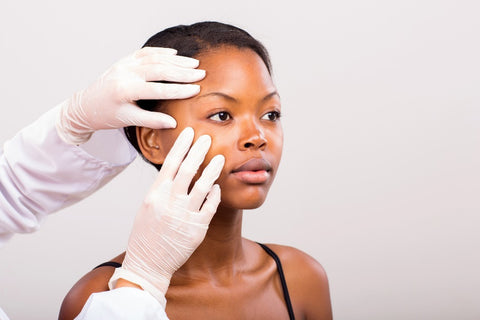Blog
Five Warning Signs of Skin Cancer You Don’t Want to Miss
Skin cancer is a major health problem in the U.S., as more and more people are diagnosed each year. According to the Skin Cancer Foundation, there are more new cases of skin cancer than the breast cancer, colon cancer, lung cancer, and prostate cancer combined.

About one in five Americans will develop skin cancer at some point in their lives, and many miss the early warning signs that can help doctors more effectively diagnose and treat it. By knowing the warning signs of skin cancer, and taking common sense precautions such as wearing sunscreen, eating healthfully, and getting a good night’s sleep, Americans can avoid this potentially deadly illness.
Some of the warning signs of skin cancer include:
• New moles larger than six millimeters in size – You shouldn’t panic every time a new freckle or mole develops, but if one develops that is larger than 6 mm in size, it’s a cause for concern. How big is 6mm? It’s about the size of a pearl. Larger moles can be an early symptom of melanoma, a deadly form of skin cancer. If you notice a large mole has developed, see your doctor for a check-up. Image source: https://www.pinterest.com/pin/212021094935853910/

• Moles with asymmetrical edges – Normal moles will typically be symmetrical and have smooth edges. Moles that are asymmetrical and which have irregular edges may be signs of skin cancer. You should also be concerned if a new mole has blurred edges that fade into your skin.
• Bumps or wart-like growths – If you have a bump that resembles a small blister and is more than six millimeters in size, there’s a chance that it may be cancerous. These bumps are common around the neck or face, and they occasionally bleed.
• Oddly colored moles – Most normal moles are brown or tan. Moles that are black, red, white, or blue may be indicators of cancer. Moles that are a mix of brown and tan are also problematic.
• A red scaly patch – If you have a red, itchy patch of skin that doesn’t go away within a few weeks, you may have squamous cell carcinoma, the second most common form of skin cancer. These patches are often confused with eczema. Seeing a doctor will determine whether the skin condition is cancerous.

JuveRest anti-aging pillows can help you get the sleep you need to make your skin healthier and more youthful in appearance. JuveRest anti-wrinkle pillows, designed by a board-certified plastic surgeon, provide the comfortable support you need to sleep easily at night and are also designed to reduce contact damage to the skin that results in wrinkles.
Source
http://www.skincancer.org/skin-cancer-information/skin-cancer-facts